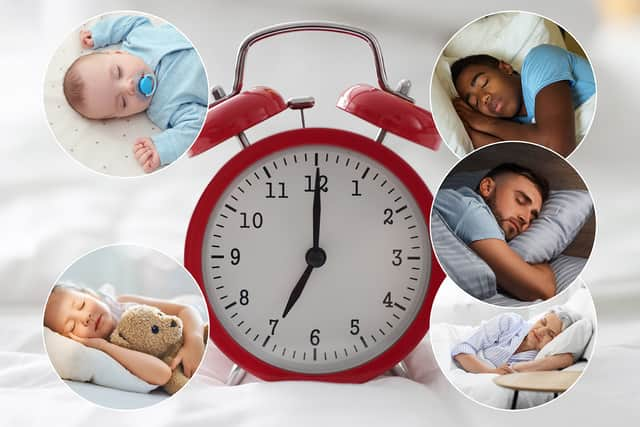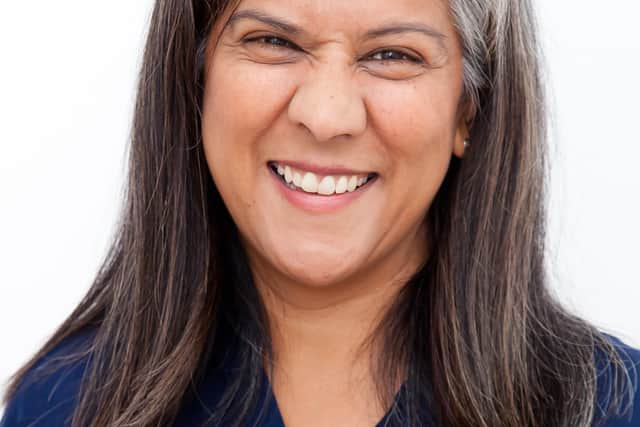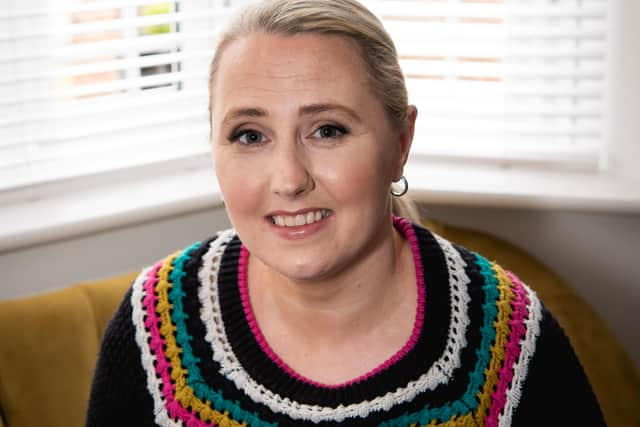How much sleep do you need? Experts explain how much rest each age group needs
and live on Freeview channel 276
In today’s modern world though, while there are many ways we can try and help us get to sleep there are also many things that can stop us from getting to sleep. Stress, looking after a baby, other lifestyle factors and even excitement can lead us to not getting enough. But, just how much sleep should we be getting each night? The answer lies partly in how old you are, according to the National Sleep Foundation. They state that this is how much sleep people of all ages need every day:
- Newborn (0-3 months old) - 14 to 17 hours
- Infant (4-11 months old) - 12 to 15 hours
- Toddler (1-2 years old) - 11 to 14 hours
- Preschool (3-5 years old) - 10 to 13 hours
- School-age (6-13 years old) - 9 to 11 hours
- Teen (14-17 years old) - 8 to 10 hours
- Young Adult (18-25 years old) - 7 to 9 hours
- Adult (26-64 years old) - 7 to 9 hours
- Older Adult (65 or more years old) - 7 to 8 hours
But, is the answer to how much sleep we need really that simple? As March is National Bed Month, World Sleep Day, as well as Sleep Awareness Week, NationalWorld has spoken to sleep experts to find out just what is the optimal amount of sleep for babies, young children, teenagers, adults and elderly people. Here’s what they told us, so you can try and get the right amount of rest each night.
Advertisement
Hide AdAdvertisement
Hide Ad

Can people determine how much sleep they need just based on age?
The age of a person is a good indicator of how much sleep a person may need, according to sleep experts but it’s not the whole story. Heather Darwall-Smith, a specialist sleep psychotherapist, said: “How I wish there was a simple answer. There is no one size fits all. The optimum number of hours of sleep for people of all ages can vary depending on individual differences and other factors such as lifestyle, health, and environment. The details given by the National Sleep Foundation are just general guidelines. Some people may need more or less sleep depending on their individual needs and circumstances.”
Darwall-Smith also says that someone’s chronotype, which is the natural inclination of an individual for when they want to sleep, should also be taken into account. She said: “Chronotype refers to whether someone is a morning person, a lark, or an evening person, an owl, or an intermediate, as per the majority of the population. This preference can affect sleep patterns and sleep needs in a number of ways. Larks tend to wake up earlier and feel more alert in the morning, while owls tend to wake up later and feel more alert in the evening. This means that larks may have an easier time falling asleep earlier in the evening and waking up earlier in the morning, while owls may have a harder time doing this.
“Larks may also need slightly less sleep than owls. This is because larks tend to fall asleep and wake up earlier, and their bodies may be naturally attuned to a shorter sleep cycle. Owls, on the other hand, may need slightly more sleep to feel rested and alert. However, it’s important to note that sleep chronotype can vary widely across individuals and can be influenced by a number of factors too, including age, genetics, lifestyle habits, and environmental factors.”
Solution focused psychotherapist Gin Lalli also suggests that gender could play a factor in determining how much sleep a person needs. She said: “Our sleep-wake cycles are ruled by our hormones. These hormones affect when we feel tired and when we feel alert. Females may need more sleep than males as they experience far more dramatic fluctuations in their hormone levels than men do, thanks to their monthly cycles and menopause, so that’s why they need more sleep.”
Advertisement
Hide AdAdvertisement
Hide Ad

How much sleep do babies actually need?
Babies do spend most of their day sleeping, especially newborn babies, and they do need a lot more sleep than any other age group. The World Health Organisation (WHO) states that babies will sleep, on average, between 12 and 17 hours per day, depending on their specific age. Babies aged 0 to 3 months will sleep for between 14 and 17 hours, whereas babies aged 4 to 11 months will need 12 to 16 hours. However, Emma Roberts, a Level six sleep coach with over 15 years experience, told NationalWorld that some babies will need less and others will need more. She said: “Newborn babies spend most of their time asleep, and as they get older they are able to stay awake for a longer amount of time. For example, I’ve looked after newborn babies who sleep 20 hours out of a 24 hour period but I’ve looked after babies who will only sleep eight or ten hours.”


How much sleep do younger children actually need?
The amount of sleep that infants and young children need also depends on the specific age of the child, according to WHO. A child aged one to two will need 11 to 14 hours, whereas a child aged three to four will need 10 to 13 hours in bed. The NHS states that older children, aged five to 12, need nine to 13 hours of hours of sleep, and generally speaking the older a child gets the less sleep they will need. So, a five-year-old is more likely to need 13 hours of rest, but a 12-year-old is more likely to need nine hours. Again, Roberts said that this can vary by individual need. She said: “My son is six and he needs around 10 hours of sleep per night, but my friends’ little girl who is the same age needs 11 hours of sleep.”
How much sleep do teenagers actually need?
The amount of sleep teenagers need tends to be less than younger children, but more than adults, as they are transitioning between these two stages of life. Lalli said teenagers need more sleep as there is a lot of developmental brain activity occurring at this age. They should be getting around eight to ten hours. However, she added that “they are notorious for trying to survive on less sleep while they are socialising, playing video games, using social media and so on”.
The exact amount of sleep teens need partly depends on what stage of puberty they are at, says the NHS. In the final stages of puberty there are natural changes to the body clock and that means there is a natural tendency for them to fall asleep later, closer to 11pm or midnight, and then sleep longer. There is also a need for additional sleep during a teen’s final growth spurt, so they can be in bed for longer.
Advertisement
Hide AdAdvertisement
Hide AdHow much sleep do adults actually need?
The World Health Organisation also recommends that the average young adult or adult get seven to nine hours of sleep per night. But Lalli questions just who classes as an “average adult”. She said: “In my opinion it’s more important to focus on the quality of sleep rather than the amount. A lot of people feel refreshed after six hours of sleep, while others need nine. It should be an intuitive gauge for adults with how much sleep they need, so some self- awareness is required.”
Roberts said she thinks that adults also get used to the amount of sleep that they are able to give themselves. She said: “People who work night shifts, for example, tend to be able to function pretty well on little sleep. I know that when I started working nights I found it incredibly difficult, but once I got used to it I was fine. At the same time, sometimes the more I sleep, the more sleep I need.”
How much sleep do elderly people actually need?
The amount of sleep people need changes again as they enter the older stages of life. In fact, charity Age UK states that “older people should not expect to sleep as well as they did when they were younger”. As a normal part of ageing , people tend to wake up more often during the night or earlier in the morning. On average, however, the charity still recommends that older people should aim for between seven and eight hours of sleep per night, but as with every other age group this is dependent on the individual.
Comment Guidelines
National World encourages reader discussion on our stories. User feedback, insights and back-and-forth exchanges add a rich layer of context to reporting. Please review our Community Guidelines before commenting.
